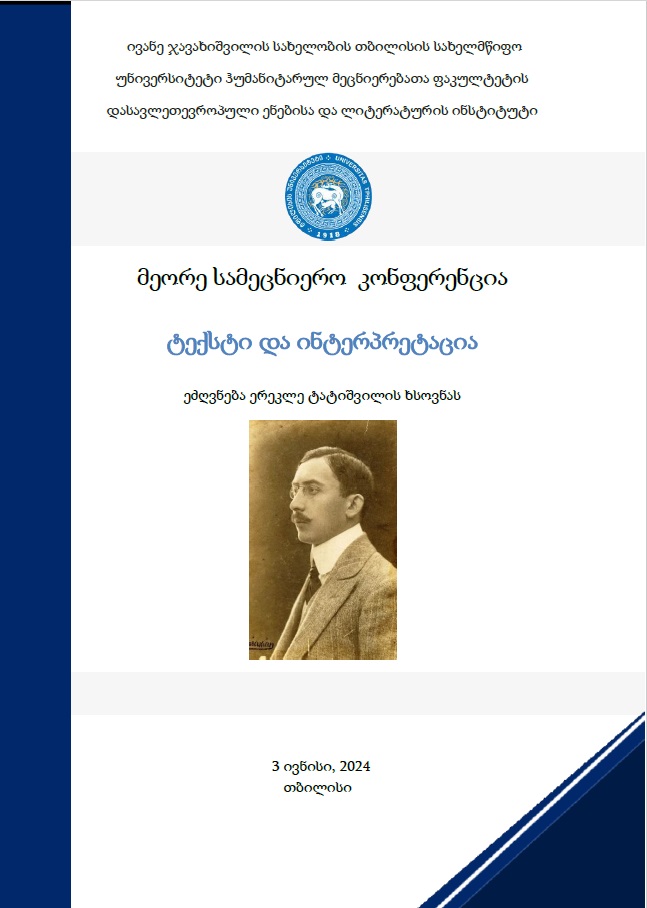Absurdity and Existentialism in Kazuo Ishiguro’s “Never Let Me Go”
Keywords:
Ishiguro, existentialism, absurd, science fictionAbstract
The works of Kazuo Ishiguro, a British author of Japanese origin, and one of the outstanding representatives of modern world literature, occupy a prominent place in the modern literary world. The writer won the Booker Prize for literature in 1989 and the Nobel Prize in 2017. His works can be read in one breath and the reader is always accompanied by a feeling of emotional tension. The author seems to be well aware of the weak and strong sides of people, and therefore his characters are often portrayed as being faced with moral dilemmas. It is difficult for Ishiguro's heroes to deal with reality, to solve existing problems, however, it is a relief for them to face up to the given situation, they seek not to receive answers to their questions from outside, but to find them within themselves and therefore reach self-harmony.
Published in 2005, “Never Let Me Go” is a dystopian novel by Kazuo Ishiguro. The book tells us about one of the most delicate, dangerous, and not completely unimaginable reality -about mass human cloning. In the form of cloned characters, the writer creates the most humane, thoughtful, sensitive, emotional artistic faces full of human feelings; Their emotional state is so real and vivid that Ishiguro's characters might be perceived as more humane than any other person can ever be.
The book can be analyzed from different perspectives; It may be perceived as a political or satirical novel, or even as a thriller, however, its main line is existentialism. The absence of free will, predestination, the feeling of being a puppet on someone else's stage, and a vain attempt to escape from all of these - this is the reality in which the protagonists of the novel have to live. Can a clone also have the desire, emotion, freedom of choice, and the right to master his/her own body? These questions will take the reader on a journey into the existential depths. Ishiguro's storytelling style is amazing. Even though the situation described by the author is cruel and tormenting, the existing reality is still portrayed by the writer with Eastern calmness and serenity. Regardless of the calm tone of the author, readers are completely shocked by the terrifying essence of the story and get the feeling that one day they themselves might become a victim of a similar experiment, the experiment that destroys the main moral property of a person - freedom of choice, the experiment which can turn a person into an object of ordinary consumption.
The paper discusses the role of existentialism in Kazuo Ishiguro's novel "Never Let Me Go." The influence of the philosophy of the absurd on the work is presented. The artistic fabric of Ishiguro's text has been compared to that of his predecessors; The literary and musical allusions used in the text are analyzed.

